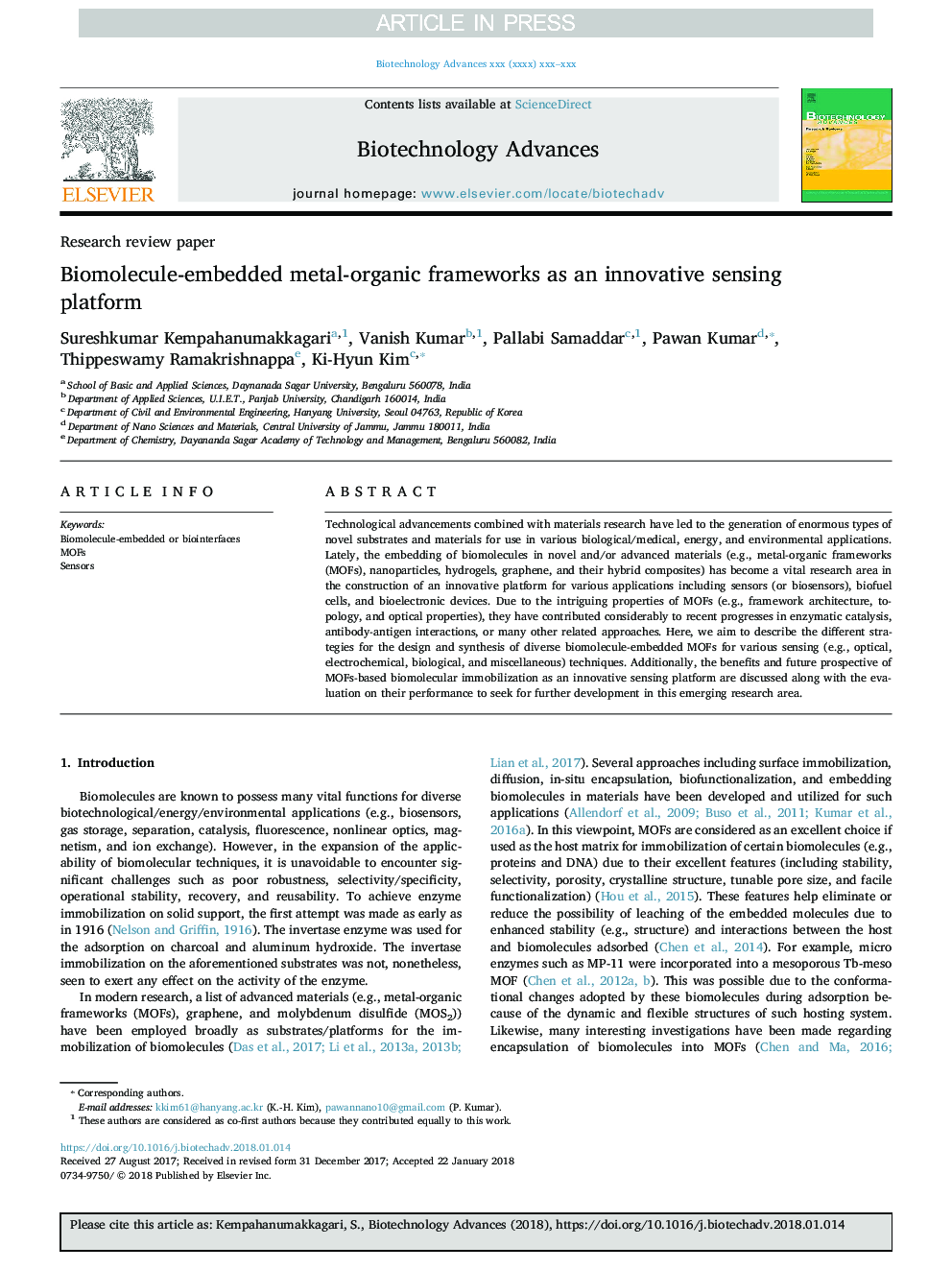| Article ID | Journal | Published Year | Pages | File Type |
|---|---|---|---|---|
| 6486659 | Biotechnology Advances | 2018 | 15 Pages |
Abstract
Technological advancements combined with materials research have led to the generation of enormous types of novel substrates and materials for use in various biological/medical, energy, and environmental applications. Lately, the embedding of biomolecules in novel and/or advanced materials (e.g., metal-organic frameworks (MOFs), nanoparticles, hydrogels, graphene, and their hybrid composites) has become a vital research area in the construction of an innovative platform for various applications including sensors (or biosensors), biofuel cells, and bioelectronic devices. Due to the intriguing properties of MOFs (e.g., framework architecture, topology, and optical properties), they have contributed considerably to recent progresses in enzymatic catalysis, antibody-antigen interactions, or many other related approaches. Here, we aim to describe the different strategies for the design and synthesis of diverse biomolecule-embedded MOFs for various sensing (e.g., optical, electrochemical, biological, and miscellaneous) techniques. Additionally, the benefits and future prospective of MOFs-based biomolecular immobilization as an innovative sensing platform are discussed along with the evaluation on their performance to seek for further development in this emerging research area.
Related Topics
Physical Sciences and Engineering
Chemical Engineering
Bioengineering
Authors
Sureshkumar Kempahanumakkagari, Vanish Kumar, Pallabi Samaddar, Pawan Kumar, Thippeswamy Ramakrishnappa, Ki-Hyun Kim,
